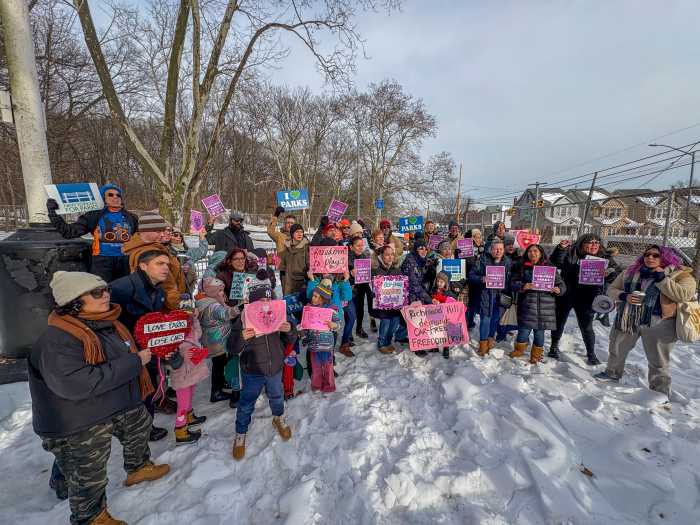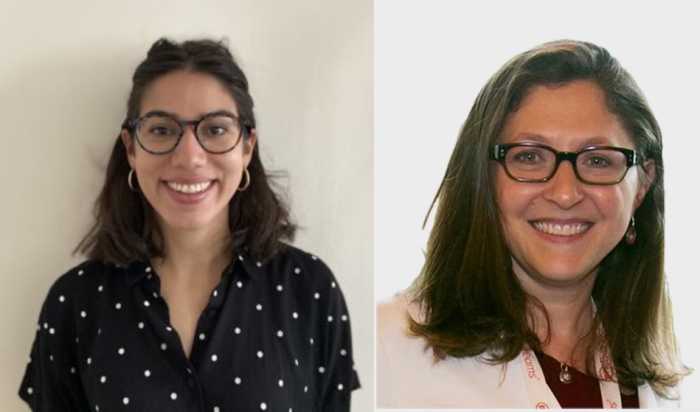By the time the International Space Station (ISS) is completed in 2011, aerospace engineers and astronauts from around the globe will have toiled for 13 years, using high-tech space-age techniques and materials. Yet, on a recent morning in Richmond Hill, a group of elementary schoolers built six space stations in just a matter of hours, using nothing more than sticks, glue, Styrofoam and paper – and a little imagination, of course.
The “Future Explorers” of the One Stop Richmond Hill Community Center’s Technology and Videoconferencing Summer Program are soaring toward the August 7 culmination of a three-week lesson on science and space.
The hands-on, five-day-a-week summer session, like the twice-a-week school year program, is free for third- to fifth-graders from six area schools.
This summer, 34 participants have journeyed down a path of discovery to places like the Cleveland Zoo and have delved into topics like solar energy and simple machines – all from the confines of One Stop, housed in the Richmond Hill Block Association’s Jamaica Avenue headquarters.
“We’re not babysitters,” explained One Stop president Simcha Waisman, as the kids and two teachers prepared recently for “Operation Space Station” with England’s National Space Centre. “We like to teach the kids. This is vacation – with fun.”
Over the course of a couple hours, Charlotte, an education development officer with the Space Centre, taught the lively bunch about the football field-sized ISS hovering 400 kilometers, or around 250 miles, above them. Per Charlotte’s instructions, each of six teams took notes as she spoke of the multinational collaboration necessary to construct and maintain the ISS and the microgravity atmosphere that astronauts experience onboard.
Afterward, representatives from each team interacted with Charlotte via One Stop’s unique – and expensive – videoconferencing technology. They answered questions that, when correct, resulted in rounds of high-fiving and “credits” that would later be redeemed for ISS building materials.
For their part, the enthusiastic Future Explorers agreed with Waisman that they were benefiting from a unique summer opportunity.
“I think that Operation Space Station is really fun because it’s educational and gives you a chance to learn about NASA and stuff that you wouldn’t learn in school,” said 11-year-old Tehani Gunaratna.
State Senator Joseph Addabbo, who dropped in to observe the program, struck a similar chord. He remarked that the program has “made the world a smaller place” for those students fortunate enough to participate.
“I love it. Obviously, the kids here are having fun and learning something at the same time,” Addabbo said, smiling and chuckling as he watched kids darting around the room trying to complete their “mission.”
“I’d have no trouble funding this,” he said to the obvious delight of Waisman, who explained that Addabbo’s efforts could potentially provide a lifeline, but would only amount to a fifth of the program’s yearly operational costs.
Waisman said he not only wants enough funding to keep his doors open, but would like enough money to be able to provide school-year participants with one extra day per week. He wants to be able to maintain the “strong foundation” that One Stop has provided students like Gunaratna, who dream of one day working inside the real International Space Station.
“In 2020, we’re going to be the future astronauts,” Gunaratna said, noting that when that time comes, she hopes to be a NASA research officer.



































